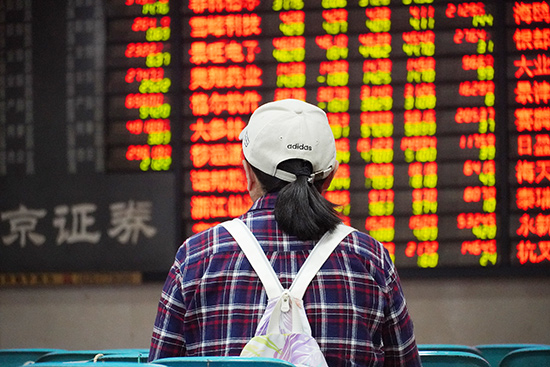美國股市不再吃香,超60%的中國企業更愿意在國內上市

|
對于想要上市的中國公司而言,美國可能正在失去吸引力。至少,這是北京知名學府清華大學和審計機構麥楷博平財務咨詢有限公司(Marcum Bernstein & Pinchuk LLP)最近對私營企業的一項調查得出的結論。 麥楷博平的聯席管理合伙人德魯·伯恩斯坦說:“大多高管在展望未來時都在遠離美國。”這項研究于三季度初完成,調查了1,200多名高管。報告顯示,66%的中國商界領袖認為國內市場是最具吸引力的上市地點,而只有18.7%的受訪者將美國視為首選。 不過仍然有一些中國公司更青睞美國:上個月,至少有9家中國公司申請在美國上市。總體而言,在納斯達克或紐交所上市的中國公司數量從去年的26家降至今年的18家。這種趨勢可能會持續下去,因為華盛頓近期的言論給尋求在美國上市的中國公司制造了一個更加敵對的環境。 上周,美中經濟安全審查委員會建議國會限制中國公司進入美國市場;特朗普總統此前曾威脅要將中國股票摘牌,盡管他沒有這樣做的權力;而白宮也考慮過阻止政府養老基金投資中國公司。 與此同時,中國多年來也一直在努力提升國內股市的吸引力,尤其是致力于將上海打造成一個金融勝地。今年7月,上海推出了科創板,這是一個類似于納斯達克的交易所,允許科技公司在盈利前進行上市。 然而,上海美國商會(American Chamber of Commerce)今年早些時候的一份報告指出,中央政府未能實現到2020年將上海打造成國際金融中心的雄心,主要由于資本管制和“隨意的政府干預”。隨著交易量和股價暴跌,這個新的科創板市場也在“崩潰”。 中國迫切希望將上海發展成為金融中心,部分原因是希望有一個可以替代香港的在岸金融中心。香港的司法和金融主管機構與中國內地幾乎完全分離,是全球企業進行IPO的主要選擇之一。 去年,共有125家公司在香港上市,共籌集了365億美元資金,港交所因此在IPO市場排行榜上名列前茅。 當年早些時候,管理港交所的香港交易及結算有限公司(Hong Kong Exchanges and Clearing)修改了上市規則,允許雙層股票上市,這種做法有助于創始人在公司上市后保持對公司的控制權。此前,由于香港拒絕雙層上市,電商巨頭阿里巴巴250億美元的IPO轉而選擇紐約。 然而,自從規則改變后,內地數家領先的科技公司——它們更偏愛雙重選擇——在香港進行了頗為轟動的IPO,其中包括智能手機制造商小米和消費者服務平臺美團。這兩家公司占去年香港IPO融資總額的89億美元。 盡管連續5個月的抗議活動重創了香港經濟,但香港股市的繁榮仍在持續。今年,阿里巴巴在港交所進行130億美元規模的第二上市,這將幫助香港再次登上榜首。因此,盡管66%的中國公司表示將在國內上市,但可能香港對他們來說已經足夠近了。(財富中文網) 譯者:Agatha |
The U.S. may be losing its appeal as a destination for Chinese companies seeking to go public. At least, that’s according to a recent survey of private enterprises conducted by Beijing’s prestigious Tsinghua university and auditor Marcum Bernstein & Pinchuk LLP (MarcumBP). “Most executives looking forward are veering away from the United States,” said Drew Bernstein, co-managing partner of MarcumBP. According to the report, which was conducted at the start of the third quarter and surveyed over 1,200 executives, 66% of Chinese business leaders see their home market as the most attractive destination for listing, while only 18.7% of respondents put the U.S. as first choice. While some Chinese firms continue to prefer the U.S.—last month, at least nine Chinese companies filed for an IPO on U.S. exchanges—overall, the number of Chinese companies listing on Nasdaq or the NYSE has fallen to 18 this year, down from 26 last year. It’s a trend that could continue, as recent rhetoric from Washington has created a more hostile environment for Chinese firms looking to go public in the U.S. Last week the U.S.-China Economic and Security Review Commission advised congress to restrict access to U.S. markets for Chinese companies; President Trump has previously threatened to delist Chinese stocks, despite lacking the authority to do so; and the White house has considered preventing government pension funds from investing in Chinese companies. Meanwhile, China has spent years trying to boost the appeal of its domestic stock markets, promoting Shanghai in particular as a destination for finance. In July, Shanghai launched the STAR Market—a Nasdaq-style bourse in Shanghai that permits pre-profit IPOs for science and technology companies. However, a report earlier this year from the American Chamber of Commerce (AmCham) in Shanghai argued that the central government had failed in its ambition to position the city as a destination for international finance by 2020, primarily due to capital controls and “arbitrary government intervention.” The new STAR Market is “crashing,” too, as trading volume and share prices on the bourse slump. China’s eagerness to develop Shanghai as a financial center is partly motivated by a desire to have an onshore alternative to Hong Kong—which has a judiciary and monetary authority largely separate from that in mainland China and is the leading destination for IPOs globally. Last year, 125 companies raised $36.5 billion collectively through listings in Hong Kong, propelling the Hong Kong Stock Exchange to pole position in the rankings of IPO destinations. Earlier that year, Hong Kong Exchanges and Clearing (HKEX), the group that manages the city’s bourse, revamped its listing rules to permit the listing of dual-class shares, which help founders retain control of a company after it goes public. Previously, Hong Kong’s refusal of dual-class listings cost the exchange Alibaba Group’s lucrative $25 billion IPO, as the e-commerce giant opted to go to New York instead. Since the rule change, however, leading mainland tech firms—which favor dual class options—have had blockbuster IPOs in Hong Kong, including smartphone maker Xiaomi and consumer services platform Meituan. The two companies accounted for $8.9 billion of the total raised through IPOs in Hong Kong last year. Despite five months of protests that have hammered Hong Kong’s economy, the local stock market continues to thrive. This year, Alibaba is preparing for a $13 billion secondary listing on the exchange which should help Hong Kong top the charts once again. So while 66% of Chinese firms say they would list at home, perhaps Hong Kong will be close enough. |













